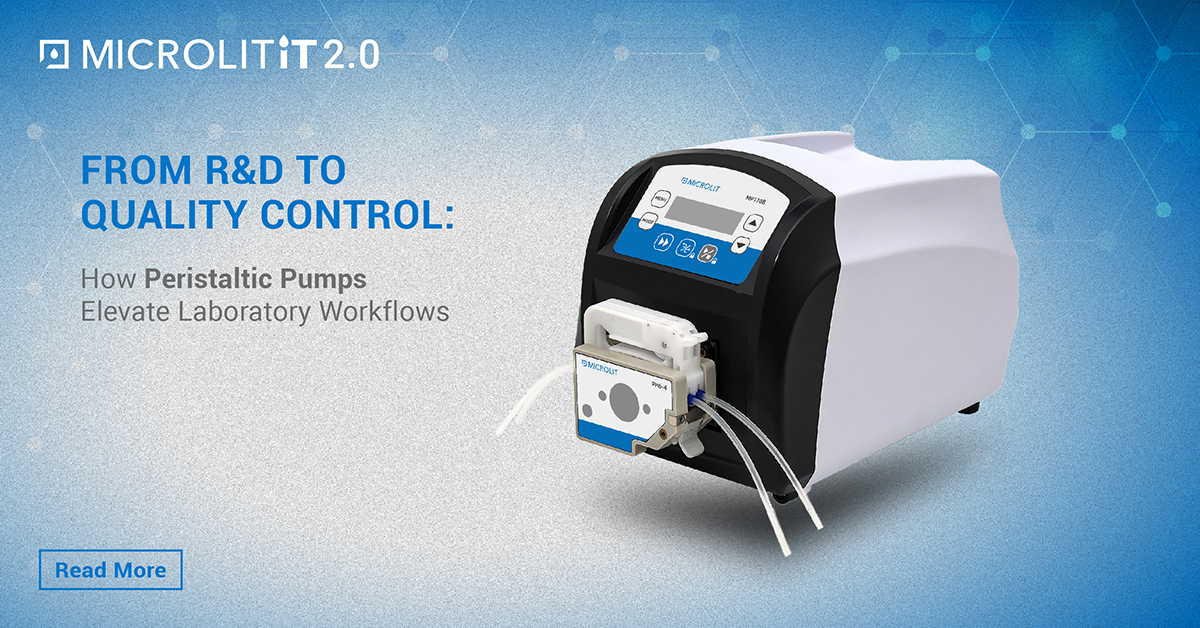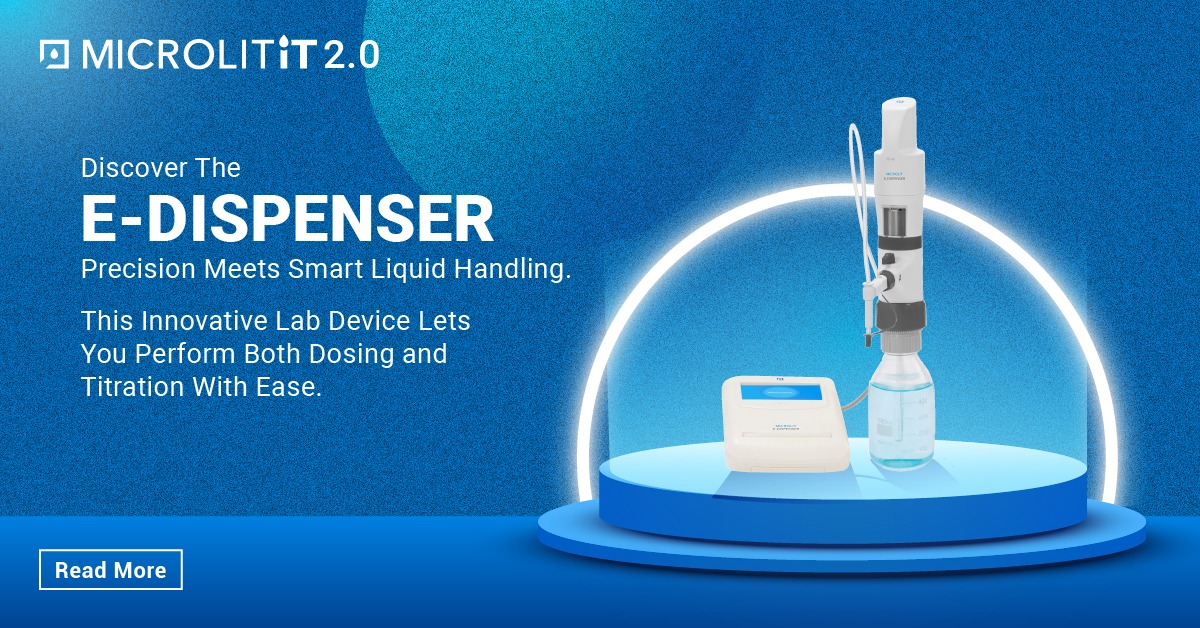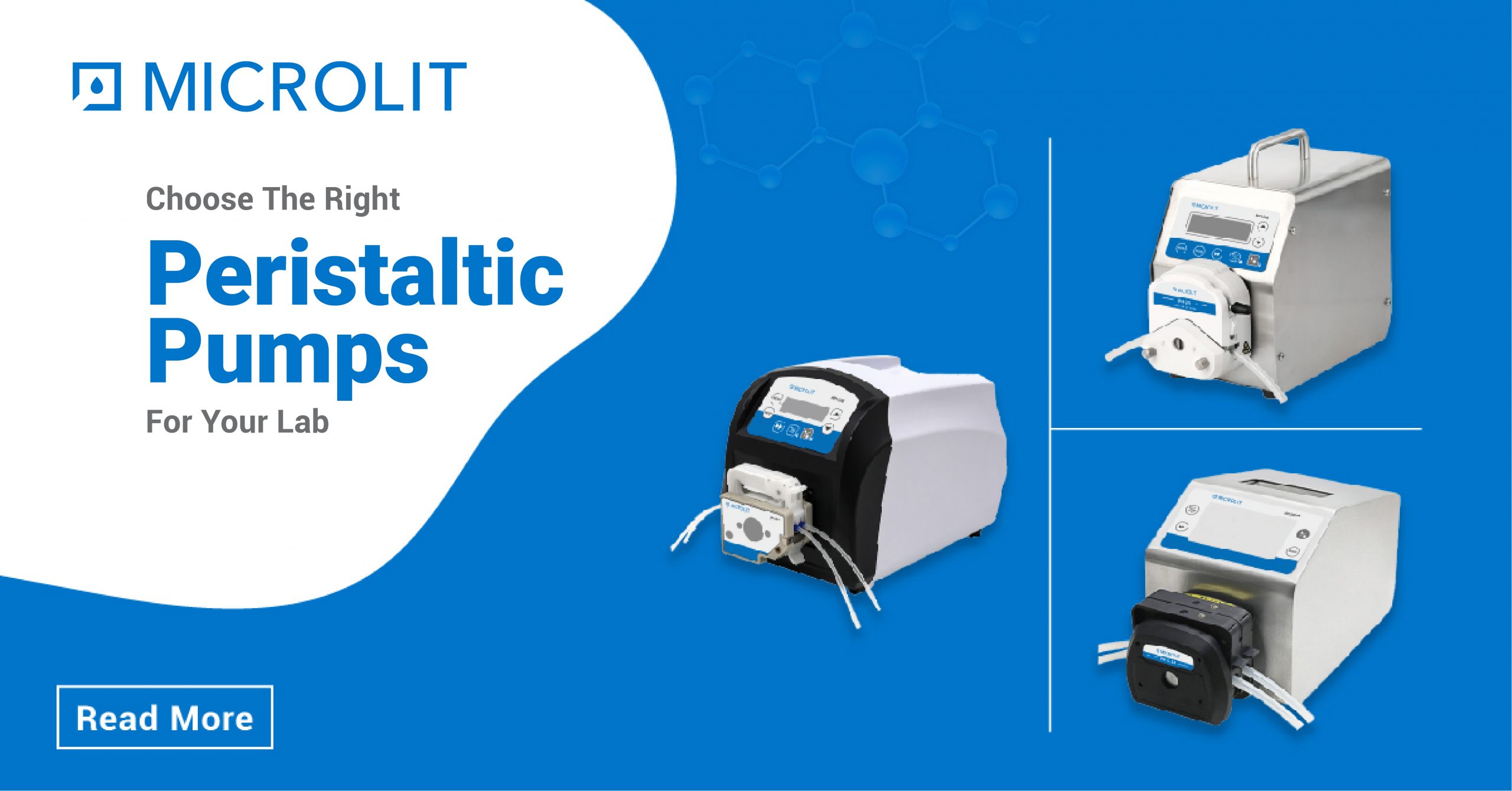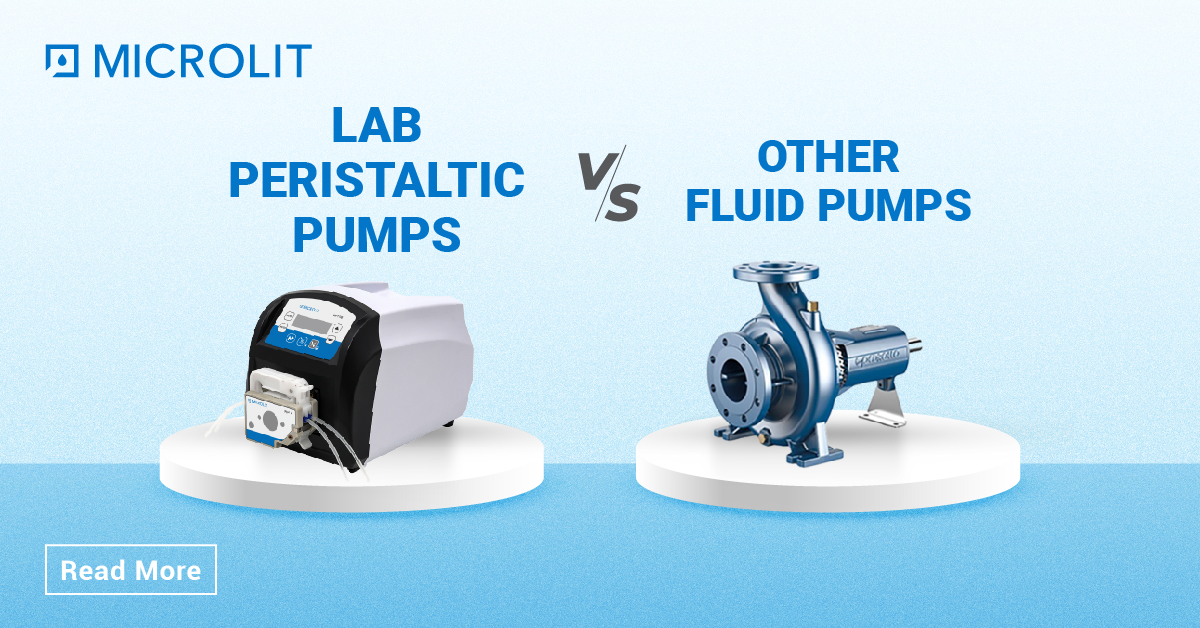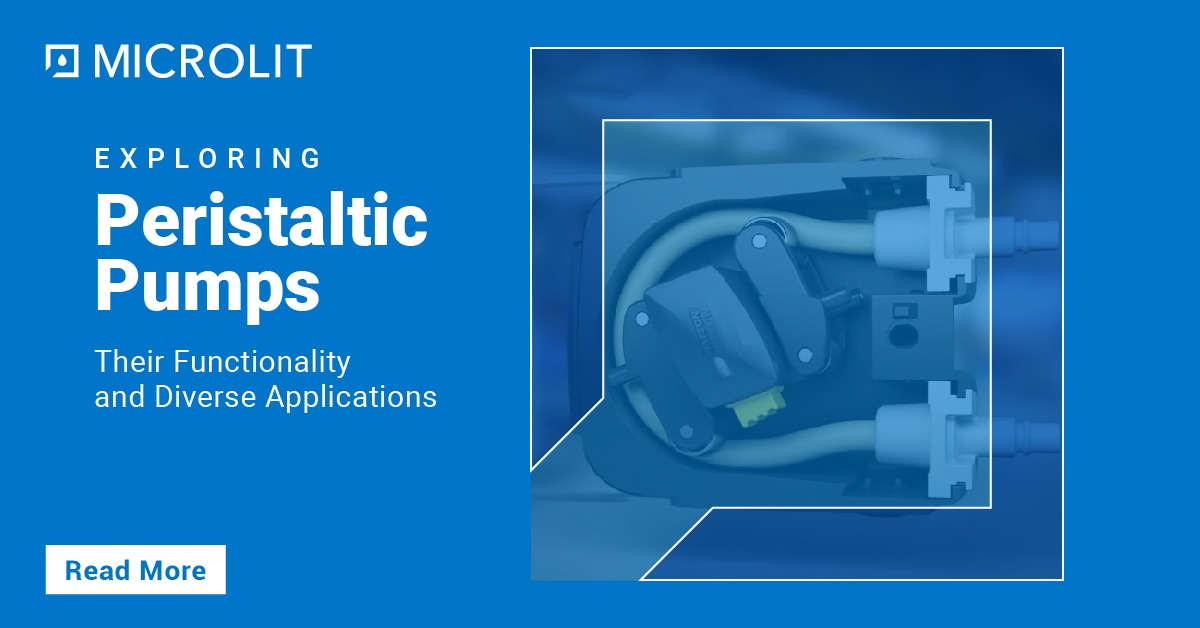The Scope of Electronic Pipettes in Sensitive Applications and Results
- October 26, 2023
- ENQUIRE NOW
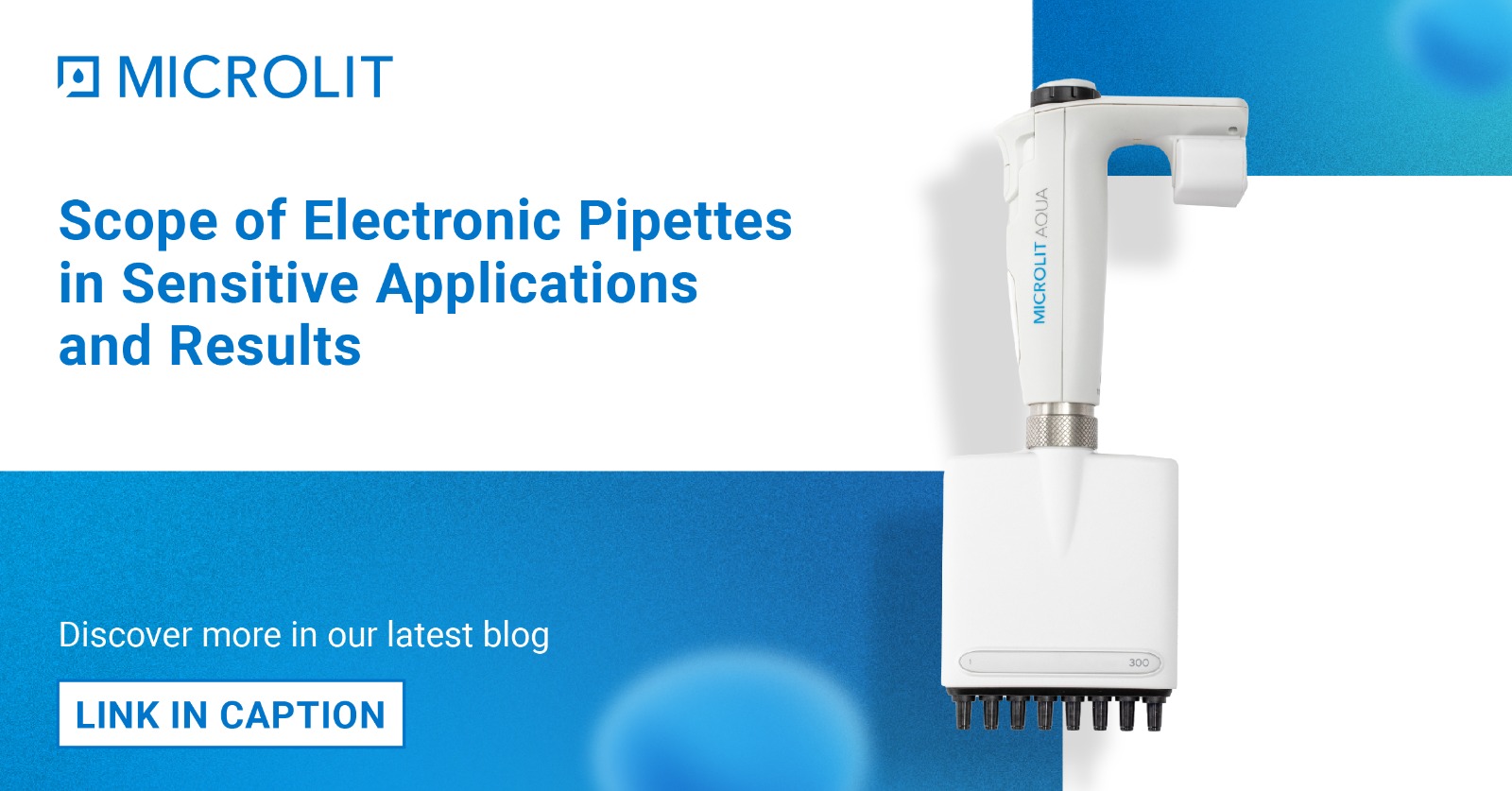
In the world of science and research, precision and accuracy are paramount. Sensitive applications demand a level of exactitude that traditional manual pipettes need help to achieve. This is where electronic pipettes, also known as electronic pipettors or motorised pipettes, step into the spotlight. These remarkable instruments have transformed how we handle liquids in various scientific and medical disciplines, offering myriad benefits for researchers and technicians. Let’s discover how electronic pipettes excel in precision applications and play a crucial role in achieving dependable results.
Electronic pipettes often come with user-friendly interfaces and built-in LCD screens, providing real-time feedback on pipetting parameters. This allows researchers to monitor the pipetting process and make necessary adjustments if required, ensuring accuracy and reducing the risk of errors. The scope of electronic pipettes in ELISA extends beyond just accuracy and precision. They also offer improved ergonomics, reducing the strain on researchers’ hands during prolonged pipetting sessions. This ergonomic design contributes to user comfort and helps maintain accuracy even during extended pipetting periods.
The Precision Advantage
One of the primary advantages of electronic pipettes is their precision. In sensitive applications, such as PCR (Polymerase Chain Reaction), qPCR (Quantitative Polymerase Chain Reaction), and ELISA (Enzyme-Linked Immunosorbent Assay), even the slightest variation in liquid volumes can have a significant impact on the results. Electronic pipettes are engineered to deliver consistent and precise volumes, making them indispensable tools for researchers in these fields. Unlike their manual counterparts, electronic pipettes allow users to set the desired volume digitally, eliminating the need to read graduations on the pipette, which can be prone to errors.
Any minor discrepancy in the handling of samples can yield inaccurate results, rendering traditional manual pipettes inadequate. This is where electronic pipettes shine, offering remarkable precision, consistency, and versatility in these critical research areas.
PCR: Redefining DNA Amplification with Electronic Pipettes
PCR is a molecular biology technique to amplify specific DNA segments. It is vital for applications like genotyping and disease diagnosis. In PCR, electronic pipettes offer precise handling of microliter volumes, ensuring accuracy in DNA amplification. Customisable protocols and contamination control with disposable tips make electronic pipettes a cornerstone of reliable results in PCR experiments.
 Polymerase Chain Reaction (PCR) is a fundamental tool in molecular biology used to amplify DNA segments for various applications, including genotyping, cloning, and disease diagnosis.
Polymerase Chain Reaction (PCR) is a fundamental tool in molecular biology used to amplify DNA segments for various applications, including genotyping, cloning, and disease diagnosis.
Precision Amplification: PCR demands accuracy down to the microliter, as even a slight variation in reagent volume can skew results. Electronic pipettes excel here, allowing researchers to set precise volumes digitally, eliminating the need to interpret graduation marks.
Customisable Protocols: PCR experiments often involve complex and multi-step procedures. Electronic pipettes can store and recall multiple protocols, ensuring the repeatability of experiments. Customisable features enable the optimisation of pipetting techniques, such as gentle mixing, which is crucial for accurate and reliable results.
Contamination Control: In PCR, where contamination can ruin experiments, electronic pipettes equipped with disposable tips reduce the risk of sample carryover. This is critical for obtaining uncontaminated amplification products.
qPCR: Precision Quantification for Reliable Data
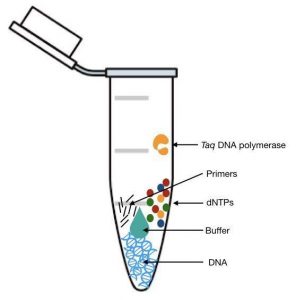 qPCR is an advanced form of PCR focused on quantifying DNA or RNA sequences. It is crucial for precise measurements in molecular biology. Electronic pipettes play a key role in qPCR by ensuring accurate quantification. They handle various sample volumes, from microliters to millilitres, making them versatile tools for a broad spectrum of qPCR experiments.
qPCR is an advanced form of PCR focused on quantifying DNA or RNA sequences. It is crucial for precise measurements in molecular biology. Electronic pipettes play a key role in qPCR by ensuring accurate quantification. They handle various sample volumes, from microliters to millilitres, making them versatile tools for a broad spectrum of qPCR experiments.
Quantitative Polymerase Chain Reaction (qPCR) is a more advanced application of PCR, focusing on quantifying DNA or RNA sequences.
Accurate Quantification: Accurate qPCR results depend on precise pipetting to ensure the correct sample and reagent concentrations. Electronic pipettes provide the level of precision necessary for dependable data.
Dynamic Range Handling: qPCR often involves a wide range of sample volumes, from microliters to millilitres. Electronic pipettes are versatile and capable of handling this spectrum, making them suitable for various qPCR experiments.
ELISA: Enhancing Immunoassays with Precision Pipetting
ELISA is a fundamental immunoassay technique used in clinical diagnostics and pharmaceutical research. Electronic pipettes enhance the precision of ELISA by handling samples and reagents with accuracy. They also facilitate custom protocols to accommodate various assays and minimise contamination through disposable tips.
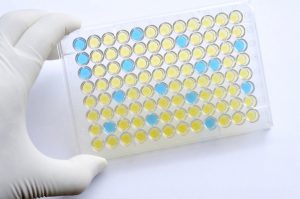 Enzyme-linked immunosorbent Assay (ELISA) is a clinical diagnostics and pharmaceutical research cornerstone. Accurate and reliable results are paramount; electronic pipettes are indispensable in achieving these outcomes.
Enzyme-linked immunosorbent Assay (ELISA) is a clinical diagnostics and pharmaceutical research cornerstone. Accurate and reliable results are paramount; electronic pipettes are indispensable in achieving these outcomes.
Precise Sample and Reagent Handling: ELISA quantifies proteins or other molecules in biological samples, requiring exact sample and reagent measurements. Electronic pipettes ensure the right quantities are dispensed, minimising errors that could compromise results.
Custom Protocols for Varied Assays: ELISA encompasses diverse assays with unique requirements. Electronic pipettes can be programmed to accommodate these variations, offering researchers consistent results across different types of tests.
Contamination Prevention: In ELISA, cross-contamination can lead to false positives or negatives. Electronic pipettes with disposable tips are a barrier, preventing unwanted transfer of samples and reagents.
The Future of Electronic Pipettes in Sensitive Applications
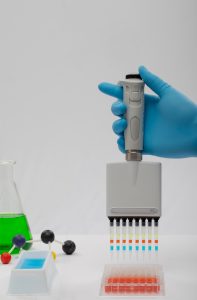 Electronic pipettes are revolutionizing how researchers approach sensitive applications like PCR, qPCR, and ELISA. Their precision, customisable features, and contamination control capabilities make them invaluable tools in the laboratory. As technology advances, the scope of electronic pipettes in sensitive applications will only expand, ensuring the accuracy and reliability required for groundbreaking scientific discoveries and medical breakthroughs.
Electronic pipettes are revolutionizing how researchers approach sensitive applications like PCR, qPCR, and ELISA. Their precision, customisable features, and contamination control capabilities make them invaluable tools in the laboratory. As technology advances, the scope of electronic pipettes in sensitive applications will only expand, ensuring the accuracy and reliability required for groundbreaking scientific discoveries and medical breakthroughs.
In conclusion, Electronic pipettes are instrumental in sensitive applications such as ELISA. Their precision, accuracy, adaptability, and storage capabilities are exceptionally well-suited for precisely manipulating small volumes of samples and reagents. The capacity to tailor pipetting modes, monitor parameters in real-time, and save protocols amplifies the efficiency and consistency. As technology progresses, the reach of electronic pipettes in sensitive applications like ELISA will continually broaden, further enhancing the precision and dependability of scientific research and diagnostic processes.
To know the details of Microlit’s latest launch, the AQUA multifunctional electronic micropipette, and its unique features, click here:
https://www.microlit.com/product-category/aqua-electronic-micropipette/ or email us at info@microlit.com

